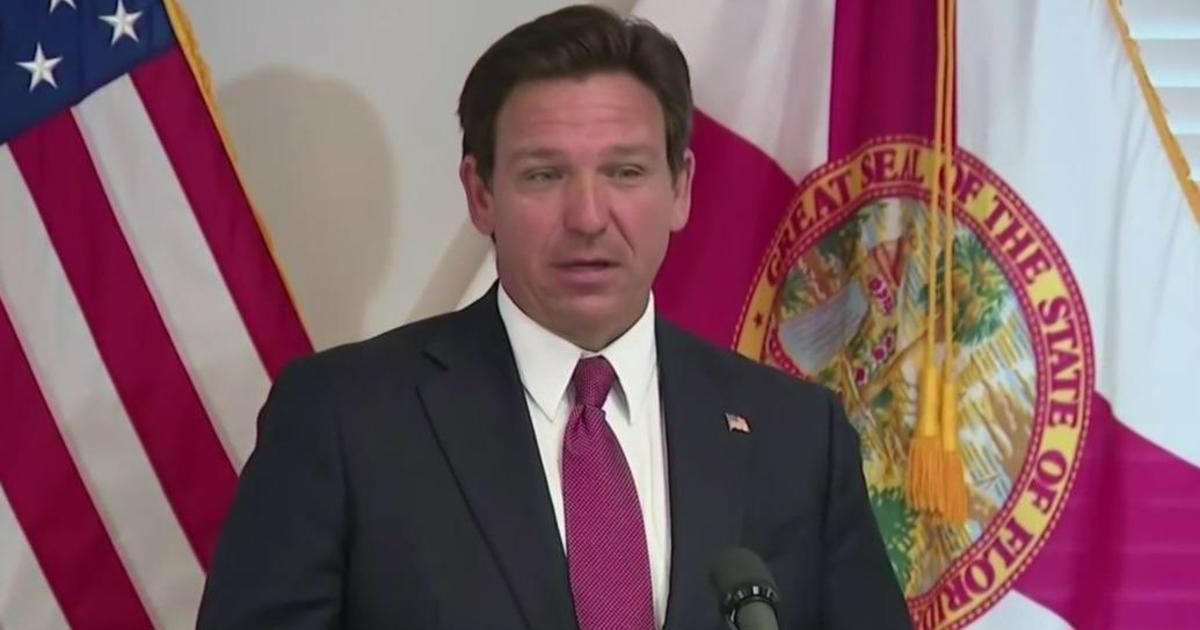Florida asks state Supreme Court to keep abortion rights amendment off the November ballot
TALLAHASSEE - On Wednesday, the Florida Supreme Court heard arguments about whether Florida voters should be allowed to vote on a Constitutional amendment to protect a woman's right to have an abortion.
The proposed amendment states in part, "No law shall prohibit, penalize, delay, or restrict abortion before viability or when necessary to protect the patient's health, as determined by the patient's healthcare provider."
"This court has emphasized repeatedly how reluctant it is to remove an amendment from the people's sanctified right of self-determination," Courtney Brewer, the attorney for Floridians Protecting Freedom. "It should not do so here."
Floridians Supporting Freedom gathered more than a million signatures to place the measure on November's ballot, but Florida Attorney General Ashley Moody petitioned the court to prevent the measure from going on the ballot. Nathan Forrester represented the state.
"The proposed amendment here should not be placed on the ballot because it is misleading in multiple respects," argued Nathan Forrester, senior deputy Solicitor General for the state of Florida. "First, it is affirmatively misleading because it tells voters something about the amendment that is literally untrue. It promises that after the amendment, quote, no law shall prohibit, penalize, delay, or restrict abortion in either of two circumstances before viability or when necessary, to protect the patient's health."
"In point of fact, federal law, the Partial Birth Abortion Ban Act already does restrict abortion in both these circumstances and will continue to do so even if the amendment passes," he added.
Almost immediately, however, the justices began to push back against Forrester, suggesting his arguments against the ballot summary were unrealistic.
"It just seems like it imposes an impossible burden on the people proposing an amendment," said Justice Charles Canady. "And it seems like to me all these things have to be argued about in the political process."
Indeed, throughout the hearing, many of the conservative justices made it clear their personal opposition to abortion, describing the constitutional amendment as a wolf that would offer unambiguously broad protection to women seeking abortions in Florida, but they also appeared skeptical of the arguments to block the ballot measure.
They maintained it wasn't their job to pass agree or disagree with the ballot, only that its language was clear and precise.
"If I understand your position, you're saying this is a wolf and a wolf it may be, but it seems like our job is to answer whether it is a wolf in sheep's clothing," said Justice John Couriel. "That's all we get to do. And it seems to me that you may be right. This may be as sweeping, as you say. It may be that it wipes away all regulation of abortion."
"I guess my point is by coming in and telling us this is a wolf, we may find that very persuasive from the standpoint of whether or not to vote in favor of the amendment, but it seems to me like that's not the question before the court," he continued. "The question before us is, is this is this hiding a ball in some meaningful way, or should we not say, you know, the voters can look at this and say, gee, that sounds really sweeping, let's not approve this."
Chief Justice Carlos Muniz, perhaps the court's most conservative justice, and who has repeatedly argued in previous hearings that fetuses should have the same protection as everyone else, also cast doubt on the state's argument.
"The voters can kind of argue about whether, you know, they want something more nuanced than that," he said. "I mean, it just doesn't seem like this is really trying to be deceptive."
Brewer said the group that gathered the signatures did everything the court required to get a measure on the ballot and that there is nothing deceptive about the language.
"By putting the language of the amendment into the summary that is accomplished here," she said. "And this court has repeatedly said that the summary and title provisions are easily satisfied when that's the case."
"So, this is a wolf that comes as a wolf," the Chief Justice responded. "If people think that this is sweeping, I mean, the summary makes it pretty obvious that it's sweeping."
"Yes," Brewer agreed. "And if voters don't agree with that, they will have the opportunity to vote against it."
The court will need to decide by April 1 whether the constitutional amendment will appear on the November ballot.




